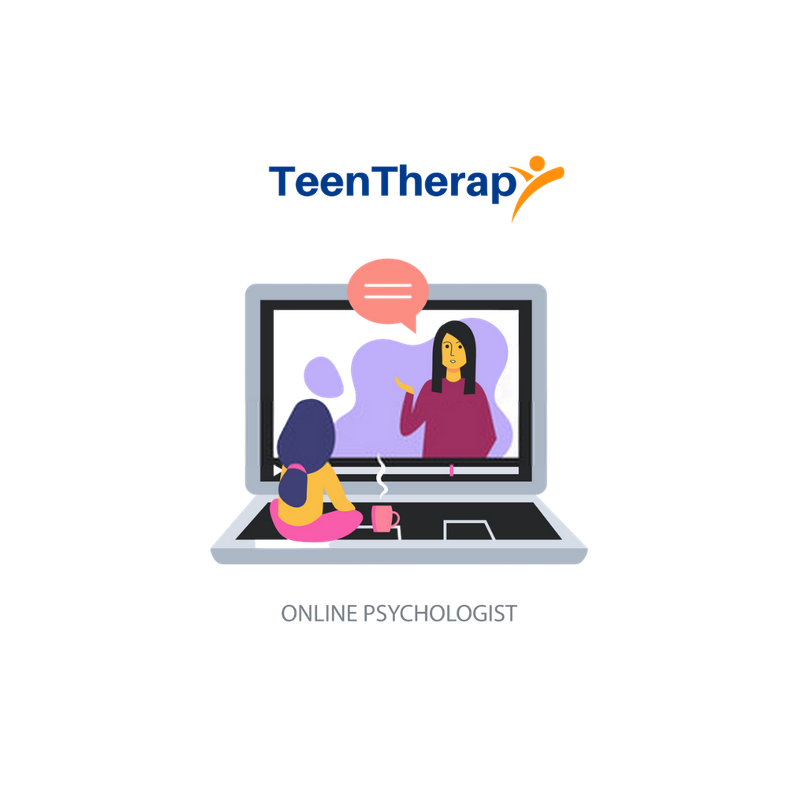Introduction to online teen counselling:
Online teen counseling refers to professional mental health support provided to teenagers through digital platforms, such as video calls, chats, or messaging. It allows teens to connect with licensed therapists remotely, offering them a convenient and confidential way to discuss their concerns, emotions, and challenges. This form of counseling is especially beneficial for addressing issues like anxiety, depression, peer pressure, and other struggles unique to adolescence.
This article explores the purpose of online teen counseling and its benefits. Please pay close attention.
In an increasingly digital world, the mental health of teenagers has become a growing concern. With the pressures of academic performance, social media, and the complexities of adolescence, many teens face mental health challenges that can be difficult to navigate alone. In response to these challenges, online teen counselling has emerged as a vital resource, offering support and guidance in a format that resonates with today’s tech-savvy generation.
The Need for Teen Counseling:
adolescence is a time of significant change, both physically and emotionally. Teens grapple with issues such as identity, self-esteem, peer pressure, and the stress of future planning. These challenges are often compounded by the digital age, where social media platforms can amplify feelings of inadequacy and isolation. According to the World Health Organization, one in seven adolescents experiences mental health conditions, yet many do not seek the help they need due to stigma, lack of access, or simply not knowing where to turn.
The Benefits of Online Counseling:
Online teen counselling offers several advantages over traditional in-person therapy. One of the most significant benefits is accessibility. Teens can access professional help from the comfort of their homes, eliminating the need for travel and making it easier for those living in remote areas or with busy schedules to get the support they need. Another key advantage is anonymity. The stigma around mental health issues can prevent teens from seeking help, but online platforms often allow them to engage with counsellors more privately.
This can reduce anxiety around counselling and encourage more honest communication.Moreover, the digital format is familiar and comfortable for most teenagers, who are accustomed to communicating through text, video, and social media. Many online counselling services offer various modes of communication, including video calls, chat, and email, allowing teens to choose the format that suits them best. This flexibility can make counselling more approachable and less intimidating.
How Online Teen Counseling Works:

Online teen counselling typically involves connecting with a licensed mental health professional through a secure digital platform. These platforms are designed to be user-friendly, often incorporating features like appointment scheduling, progress tracking, and resource libraries. The process usually begins with an initial assessment, where the counsellor gathers information about the teen’s mental health, concerns, and goals.
Based on this assessment, the counsellor creates a tailored plan to address the teen’s specific needs. Sessions are then conducted regularly, with the frequency depending on the severity of the issues and the teen’s preferences.Many platforms also offer resources for parents, providing guidance on how to support their child’s mental health journey. This holistic approach ensures that the entire family can be involved in the process, fostering a supportive environment for the teen.
Addressing the Challenges:
While online teen counselling offers many benefits, it is not without challenges. One concern is the lack of physical presence, which some argue can make it harder to build a strong therapeutic relationship. However, many teens report feeling just as connected to their online counsellors as they would in person, especially when the counsellor is skilled in digital communication.Another challenge is ensuring privacy and confidentiality.
Reputable online counselling platforms use secure, encrypted systems to protect client information, but it’s important for users to be aware of the potential risks and to choose platforms that adhere to strict privacy standards.Finally, accessibility can be a double-edged sword. While the convenience of online counselling is a major benefit, it can also lead to over-reliance on digital communication, potentially diminishing face-to-face social interactions. It’s essential to strike a balance, using online counselling as a tool while encouraging teens to engage in real-world relationships and activities.
The Future of Online Teen Counseling:

As the demand for mental health services continues to grow, online teen counselling is likely to become an increasingly important part of the mental health landscape. Advances in technology, such as virtual reality and AI-driven therapy tools, may further enhance the effectiveness and accessibility of these services.In conclusion, online teen counselling represents a crucial lifeline for many young people, offering them the support they need in a format that is both accessible and comfortable.
While it may not be a perfect solution for everyone, it has the potential to make a significant positive impact on the mental health of the next generation. As society continues to evolve, so too will the methods we use to support our youth, ensuring that they have the tools they need to navigate the challenges of adolescence and emerge as healthy, well-adjusted adults.
Pros and Cons of Online Teen Counseling:
Online teen counselling has become an increasingly popular option for addressing the mental health needs of adolescents. Like any service, it comes with its own set of advantages and disadvantages. Below is a balanced look at the pros and cons of online teen counselling.
Pros of Online Teen Counseling
1. Accessibility:
Wide Reach:
Teens in rural or remote areas, where in-person counselling services may be scarce, can easily access online counselling.
Convenience:
Sessions can be scheduled around school and extracurricular activities, and teens can receive support from the comfort of their own homes.
2. Anonymity and Privacy:
Reduced Stigma:
The perceived anonymity of online counselling can make it easier for teens to seek help without worrying about the stigma often associated with mental health issues.
Comfortable Environment:
Teens may feel more comfortable and open when communicating from a familiar environment rather than a clinical setting.
3. Flexibility:
Various Communication Methods:
Online platforms often offer multiple ways to interact with counsellors, including video calls, messaging, and emails, allowing teens to choose the mode they find most comfortable.
Easy Scheduling:
The flexibility of online platforms allows for easier rescheduling and continuity of care, even when teens have busy or unpredictable schedules.
4. Cost-Effective:
Lower Costs:
Online counselling can sometimes be more affordable than in-person sessions, reducing financial barriers to accessing mental health care.
No Travel Costs:
The absence of travel expenses makes it more economical for families.
5. Familiarity with Technology:
Digital Natives:
Teens are generally more comfortable with digital communication, making online counselling a natural fit for their needs and preferences.
Cons of Online Teen Counseling
1. Lack of Physical Presence:
Connection Challenges:
Building a strong therapeutic relationship can be more difficult without face-to-face interaction, potentially limiting the depth of communication and rapport.
Non-Verbal Cues:
Counsellors may miss important non-verbal cues, such as body language, which can be vital in understanding a teen’s emotions and mental state.
2. Technical Issues:
Connectivity Problems:
Poor internet connection or technical glitches can disrupt sessions, leading to frustration and potential interruptions in the counselling process.
Technology Access:
Not all teens may have access to the necessary devices or stable internet, creating a barrier to online counselling.
3. Privacy Concerns:
Confidentiality Risks:
Although most platforms use encryption, there is still a potential risk of data breaches or unauthorised access to sensitive information.
Shared Devices:
Teens may share devices with family members, raising concerns about privacy if others can access their counselling sessions or communications.
4. Limited Emergency Support:
Crisis Situations:
In cases of severe mental health crises, online counselling may not be sufficient. Counsellors may not be able to provide immediate intervention, which is critical in emergencies.
Referral Limitations:
Online counsellors might have limited ability to refer teens to local resources or services in their area.
5. Over-Reliance on Technology:
Social Isolation:
While convenient, relying too much on online counselling might limit opportunities for face-to-face social interactions and support, which are also important for mental well-being.
Potential Overuse:
Teens may become overly dependent on digital communication, potentially hindering their ability to develop and maintain in-person relationships.
Conclusion:
Online teen counselling offers a valuable and accessible resource for many young people struggling with mental health issues. Its convenience, flexibility, and familiarity with digital communication make it particularly well-suited to today’s generation of teens. However, it is not without its limitations. The lack of physical presence, potential technical issues, and privacy concerns are important factors to consider when choosing this form of counselling.Ultimately, the decision to use online teen counselling should be based on the individual needs and circumstances of the teen, and it may be most effective when used in conjunction with other forms of support, including in-person therapy and community-based resources.
you must watch 👁️👁️ this article 👇👇⬇️
How much does couples counseling cost?





